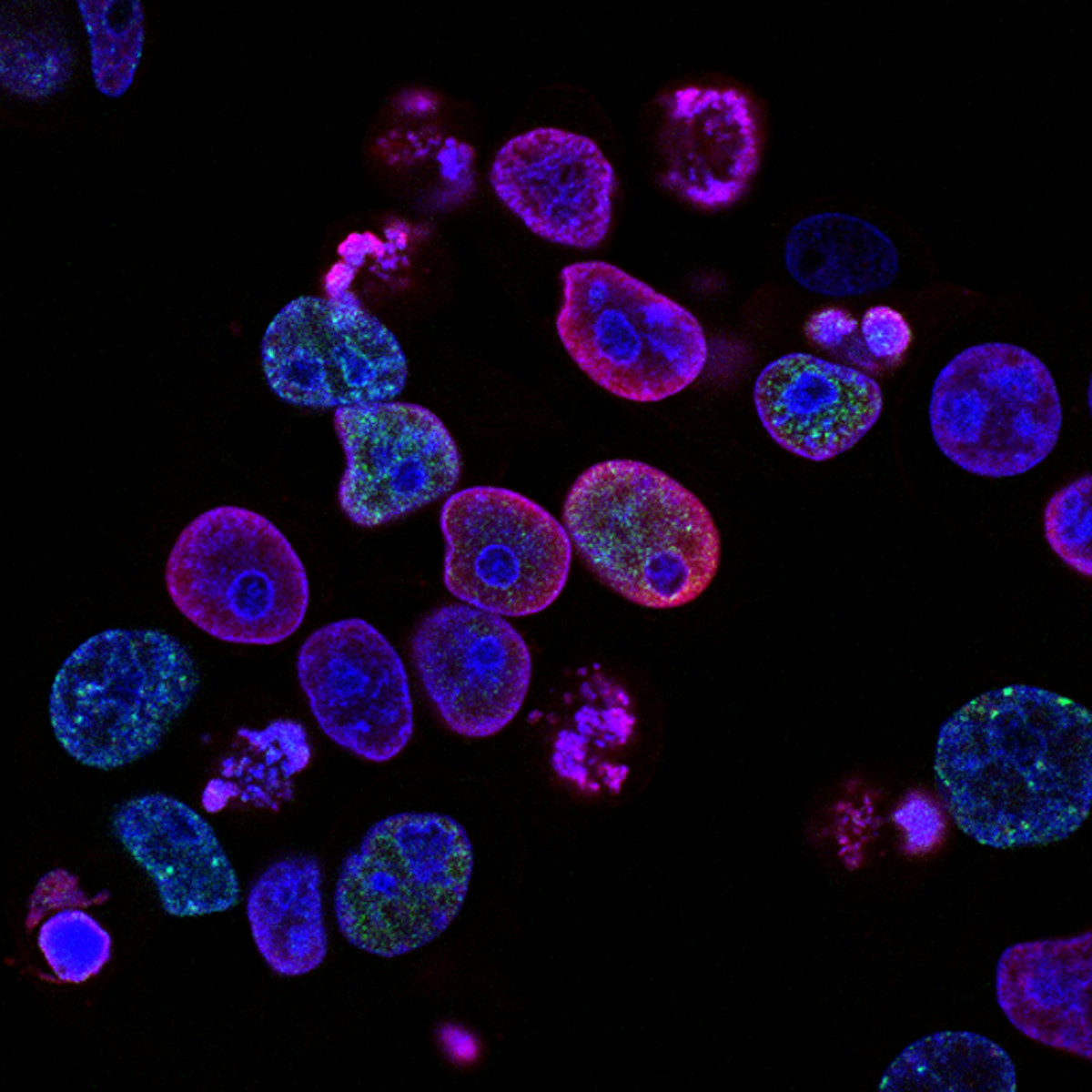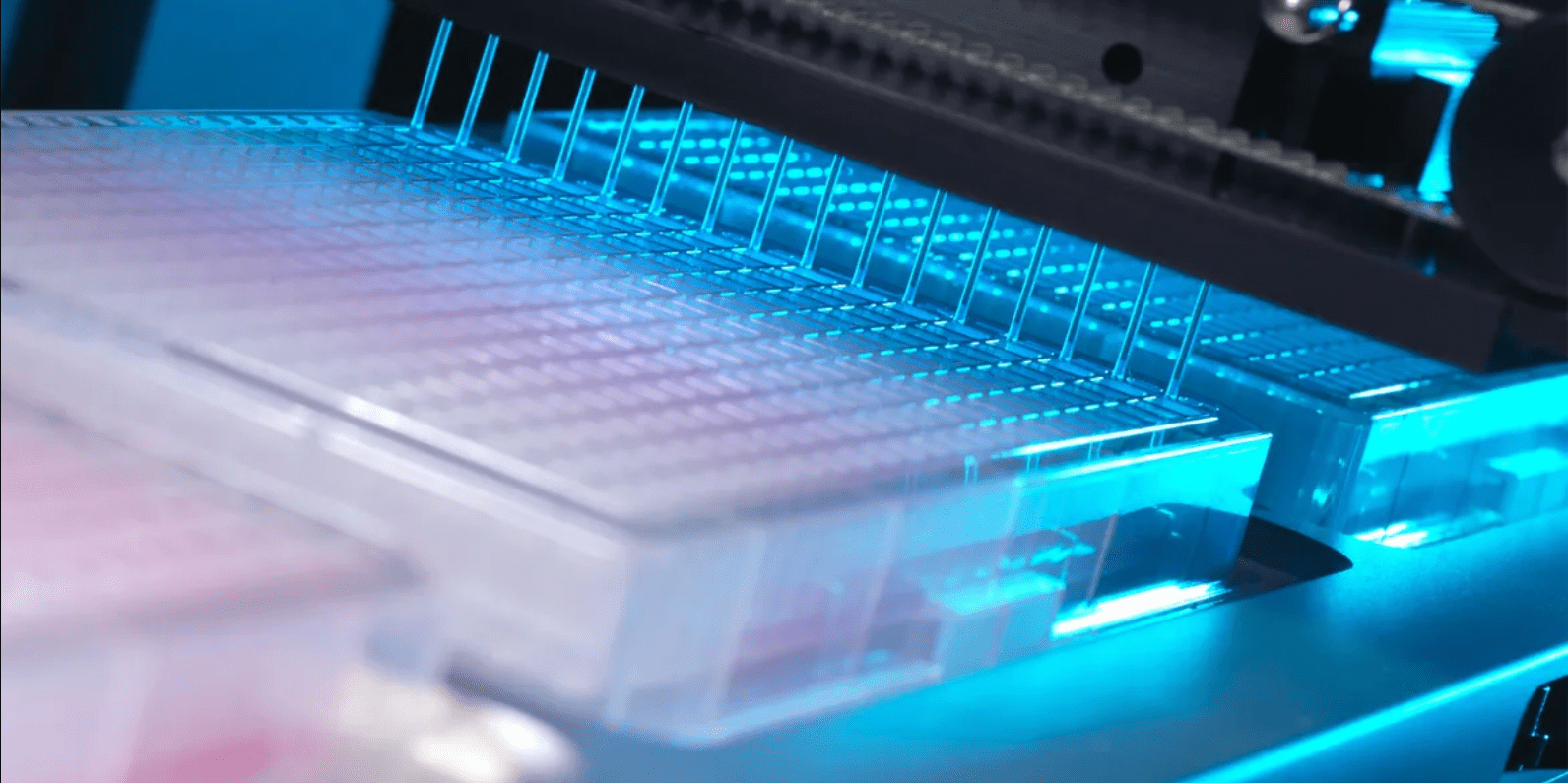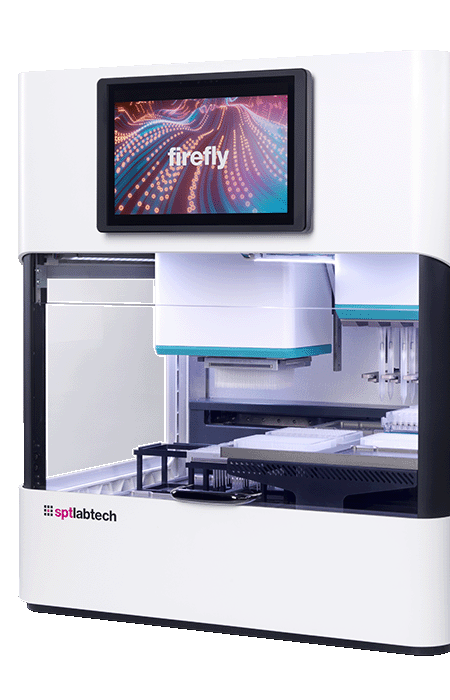
- Applications
-
Products
-
Liquid Handling
- firefly Accelerate genomic research with innovative all-in-one, compact liquid handling
- mosquito Nanolitre liquid handling technology performs ‘traditional’ tasks at a fraction of the volume, and higher speeds
- dragonfly Delivers accurate and repeatable nanolitre to milliliter dispensing
- apricot Automated liquid handling instrumentation for convenient general use across your entire team
- Sample Preparation
-
Sample Management
- comPOUND A scalable, reliable, and secure compound management solution
- BioMicroLab Easy-to-use sample management automation instruments
- arktic Robust biospecimen storage and management down to -80°C
- lab2lab Novel sample and data transfer network system
- comPACT Reliable and efficient -20°C storage and retrieval has never been more accessible
-
Liquid Handling
-
About
- Company With a focus on liquid handling, sample preparation and sample management, our expert teams create state-of-the-art solutions that scientists and researchers can trust Culture We have one overarching mission: to work together to accelerate life science research. Through our innovative solutions and state-of-the-art tools, we believe we can make a real difference to human health Partners Collaboration is key in our mission to make a real difference to human health. Partnering with application leaders globally, we co-create to solve new challenges across the life sciences. Innovation From the initial prototype through to manufacturing, installation and beyond, we bring a problem-solving mindset and technical expertise to drive innovation
-
Executive Leadership
 Through strategic guidance, visionary thinking, and a relentless pursuit of excellence, our senior executives steer SPT Labtech towards achieving its mission of making a real difference to human health through solving advanced laboratory challenges.
Learn more
Through strategic guidance, visionary thinking, and a relentless pursuit of excellence, our senior executives steer SPT Labtech towards achieving its mission of making a real difference to human health through solving advanced laboratory challenges.
Learn more 
-
View all
 Board of Directors
Board of Directors
 Our Board of Directors are committed to driving the long-term success and sustainability of SPT Labtech, providing expert guidance and oversight to execute the company’s ambitious commercial strategy.
Learn more
Our Board of Directors are committed to driving the long-term success and sustainability of SPT Labtech, providing expert guidance and oversight to execute the company’s ambitious commercial strategy.
Learn more 
-
Knowledge Base
- Resources Our wide range of insightful resources include videos, whitepapers, eBooks, application notes and more Events & Webinars Meet the SPT team at events all over the globe and virtually via our webinars Podcast We chat with innovators and leaders from across the community to gain their unique insights. News Latest news from SPT Labtech globally Blog Our latest blog posts feature trends in research, innovative techniques and new technology
-
09 February, 2026
 SPT Labtech and BellBrook Labs Introduce High-Throughput Screening Platform for Cancer Research
Continue reading
SPT Labtech and BellBrook Labs Introduce High-Throughput Screening Platform for Cancer Research
Continue reading 
-
14 January, 2026
.jpg?length=320&name=Twist%20x%20SPT%20Labtech%20Press%20Release%20(1200%20x%20800%20px).jpg) SPT Labtech enables automated Twist Bioscience NGS library preparation workflows on firefly platform
Continue reading
SPT Labtech enables automated Twist Bioscience NGS library preparation workflows on firefly platform
Continue reading 
-
11 December, 2025
 5 Key Sample Management Automation Trends for 2025- 2026: An Interview with SPT Labtech’s Cory Tiller
Continue reading
5 Key Sample Management Automation Trends for 2025- 2026: An Interview with SPT Labtech’s Cory Tiller
Continue reading 
10
- Careers
Single Cell Genomics
Automation and miniaturization unlock the power of single-cell analysis and sequencing, driving throughput and cost efficiency. Discover how the combination of these technologies revolutionizes our understanding of complex biological systems and disease to accelerate research outcomes.
By probing the DNA and RNA of individual cells, single-cell methods facilitate a granular understanding of genetic variations, cellular functions, and the complex mechanisms that drive health and disease.

Unraveling the complexity of biology one cell at a time
Whereas traditional sequencing analyzes genetic material from bulk tissue samples, single-cell sequencing probes the genome and transcriptome within just one cell. Through unraveling the complexity of biological systems, single-cell sequencing has proven to be a powerful tool in understanding cellular heterogeneity at an unprecedented resolution. The technique has revealed rare and unique cell types, advanced our understanding of cancer and provided insights into cell development and disease progression. As the technology evolves, single-cell analysis promises to transform personalized medicine through early diagnostic testing and gene therapy targeting.
What are the limitations of single-cell genomics?
The complexity of biological tissues demands the analysis of vast numbers of single cells, ranging from several hundred to over one hundred thousand, to gain a comprehensive understanding of tissue composition and delve into sub-population biology and cell-cell interactions. When done manually, this is a huge amount of work that is both time and labor-intensive. Achieving high-quality sequencing libraries demands precise liquid handling at small volumes, introducing the risk of errors and sample loss. Moreover, the sheer scale of this work incurs significant costs, not only in sequencing but also in library generation.

Driving throughput and efficiency through automation
Our automated liquid handling solutions drive speed and efficiency in library generation, reducing the time required for high-quality library generation to as little as two hours. By relieving scientists of the substantial burden of manual pipetting, valuable time is freed up for more valuable tasks. Automation enables running protocols in 96 or 384-well formats simultaneously, significantly improving throughput in library generation. This accelerates data generation and scalability without imposing significant resource costs.
Accelerating discoveries with miniaturization
Miniaturization has emerged as a hero technique in single-cell genomics. The ability to generate high-quality libraries at a fraction of the volume makes single-cell techniques a more financially viable option for laboratories. Our dedicated miniaturization liquid handler, mosquito®, delivers accurate and precise pipetting down to 25 nL, enabling researchers to reach their throughput potential and drive discoveries at an accelerated pace.
Value in versatility
Given the dynamic nature of the field, new single-cell methods and library preparation kits are constantly emerging. As such, there is a pressing need for adaptable equipment that can accommodate these new chemistries. By utilizing positive displacement technology, our solutions handle accurately handle even the most viscous and challenging liquids at very low volumes. This versatility ensures compatibility across various kits and reagents, maintaining flexibility in experimental approaches.

Enhancing single-cell workflows with SPT Labtech liquid handling
Our suite of automated liquid handling solutions - mosquito®, firefly® and dragonfly® - enhance library preparation for single-cell sequencing experiments with their speed, accuracy and reliability.
firefly®
Innovative all-in-one liquid handling brings together multiple technologies within a single compact design for more efficient library and sample preparation. Underpinned by powerful, intuitive software, firefly unlocks the potential of automation for all to accelerate single-cell research.
Explore firefly

dragonfly® discovery
dragonfly discovery delivers fast and reliable non-contact dispensing for all liquid types thanks to its positive displacement technology. Highly accurate low volume dispensing and ultra-low dead volumes allow researchers to minimize reagent costs, save time and standardize protocols.
Explore dragonfly discoverymosquito® genomics
mosquito's ability to handle nanoliter volumes with precision using true positive displacement technology drives down the high costs of single-cell workflows. Harnessing the power of miniaturization enables researchers to drastically improve productivity and reduce cost per sample.
Explore mosquito genomics
Automating Scale Bio Single Cell RNA-Seq
The easy-to-use, plate-based technology of the ScaleBio Single Cell RNA Sequencing Kit, coupled with firefly’s efficient and sustainable platform, provides an automated workflow that supports scientists in scaling up single-cell studies.
Generating Cell Atlases at CZ Biohub
Meeting Core Facility Sequencing Demands
Miniaturization for NGS Library Prep
Scaling up plate-based single-cell profiling:introducing automated STORM-seq
In this poster we present Single-cell TOtal RNA Miniaturized sequencing (STORM-seq), which pairs Takara Bio’s SMART® technology with SPT Labtech’s mosquito® HV genomics liquid handling platform.




